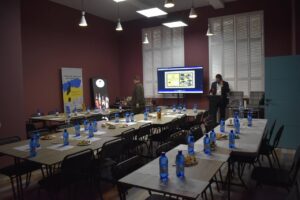
On Saturday, November 7, on the basis of the analytical center “Experts Club” with the assistance of the public association “Ukrsadvinprom” and the charitable foundation “Reconstruction and Development of Ukraine”, the second scientific and practical seminar-tasting of vintage drinks aged from 20 to 80 years was held. The seminar was attended by representatives of the Ukrainian wine industry, retail, media, and other experts.
At the seminar, Igor Magalyas, an expert collector of vintage alcoholic beverages, introduced the participants to the most popular varieties of Ukrainian and European vintage wines, brandy and other drinks aged up to 80 years. Ukrainian products were presented at the conference by such brands as Sherry Massandra 1983 and Black Doctor 2007. Of the foreign alcoholic brands, Curasao liqueur from the 1950s, the rare sherry brandy Hispano from 1870 and another Spanish drink Ponche Rives from 1978 received the highest ratings from the participants. In total, the participants of the seminar evaluated 15 different vintage drinks.

According to Igor Magalyas, all products presented at the seminar are in the budget price segment and their cost does not exceed the cost of modern branded alcohol on the shelves of Ukrainian supermarkets.
“Most of the drinks presented here were purchased by collectors in Europe at auctions or at sales of private collections. At the same time, they have a number of taste and quality advantages over more modern drinks that can be freely bought at retail outlets, even if it is the same brand,” he said.
According to the expert, the fact is that in the 80-90s of the last century, the automation of alcohol production, introduced in order to increase the volume of products sold, had a negative impact on the quality of wine and distilled drinks.
“In particular, in my opinion, the ability of the same brandies to improve their palatability as they age after bottling was practically lost. In other words, if we open a bottle of good brandy from 1970 today, then such a drink will have a much richer flavor bouquet than if we opened a bottle of the same brandy 30 years later, but, say, 2020 bottling,” Igor explained Magalyas.
The organizer of the seminar Maxim Urakin, in turn, emphasized the importance of developing the vintage drinks market in Ukraine and popularizing the culture of drinking them.
“Each bottle of such wine or brandy has its own history; it is a rather rare, almost unique product, but at the same time it is quite affordable and popular in Europe. If we add up the age of drinks at today’s tasting, we get an impressive figure of more than 700 years of the total age of drinks, which also makes our event unique,” he stressed.

Vintage (milezim) – in winemaking means the year of ripening of the harvest of a certain grape variety from which wine, brandy, cognac or other drink based on it is produced. This indicator is important in determining the characteristics of the drink, since weather and climate conditions change every season, which can both positively and negatively affect the organoleptic characteristics of drinks of the same brand.
“Experts Club” is an analytical center engaged in research in the field of economics, sociology and other scientific disciplines. In particular, with the assistance of the Club of Experts, several events were held last year to promote domestic winemaking products.
Public Union “Ukrsadvinprom” acted as a partner of the seminar and tasting. “Ukrsadvinprom” unites about 200 producers of fruits, berries, nuts and grapes, enterprises engaged in the processing of fruits and berries, wine production, as well as scientific institutions for the introduction of new scientific approaches to production.
Charitable Foundation “Reconstruction and Development of Ukraine” carries out extensive volunteer activities. In particular, with the support of the rector of KNUCA (KNUBA) Petr Kulikov, the fund will soon hand over a modern mobile hospital. The head of the fund is Artem Goncharenko.
Organizers will send part of the proceeds from the event to purchase a mobile hospital.
CHARITY, CONFERENCE, EXPERT_CLUB, SCIENCE, UKRSADVINPROM, VINTAGE_WINE, WINE, WINEMAKING, АРТЕМ ГОНЧАРЕНКО
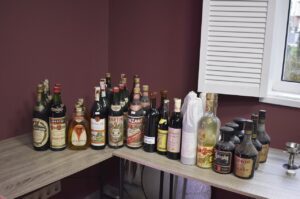
On the 28th of October the scientific and practical seminar on “Vintage (molesime) wines and cognacs” was held in Kiev analytical center “Club of experts” with the assistance of the public association “Association of gardeners, winegrowers and winemakers of Ukraine” (“Ukrsadvynprom”) and with the participation of an expert collector of vintage alcoholic beverages Igor Magalyas.
There were 17 kinds of wine drinks, produced in Ukraine and Europe, aged up to 80 years. During the tasting the expert group evaluated the individual qualities of drinks with different ageing and determined their organoleptic characteristics.
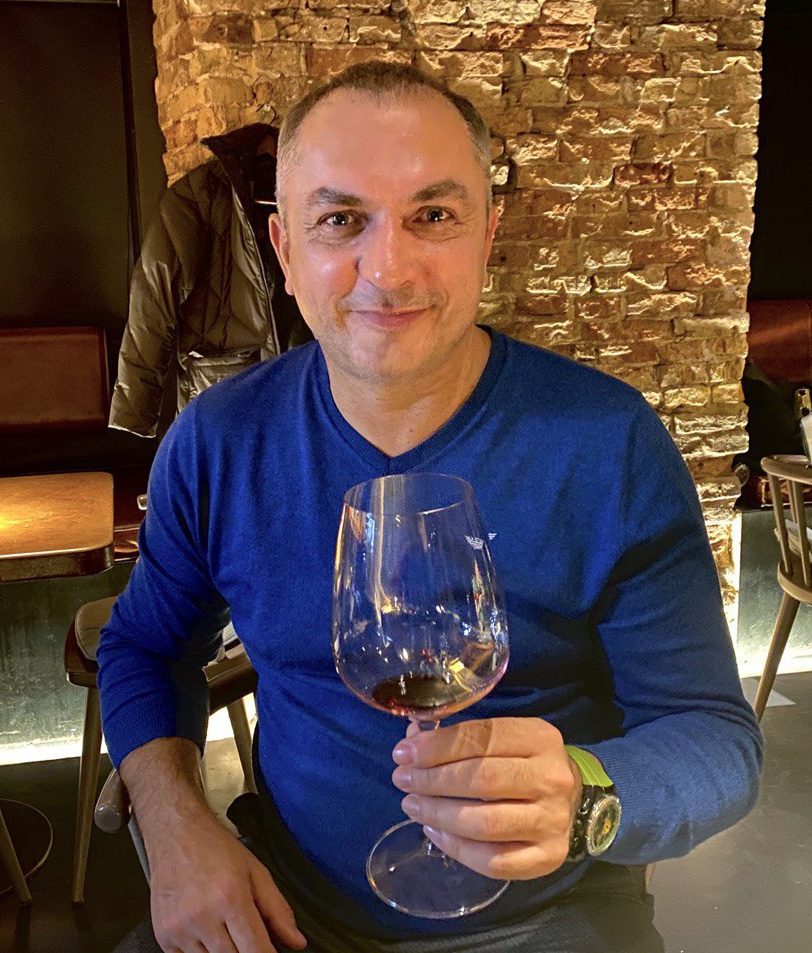
According to Maxim Urakin, the organizer of the conference, in the future holding of such events will help to develop the market of vintage beverages in Ukraine and increase the export potential of domestic producers.
“At the moment vintage wines and cognacs are considered elite and unattainable for the average buyer. In reality this is not the case. In EU countries this category of drinks is available for all segments of the population and their prices are not much higher than the average price for ordinary wine on the supermarket shelves”, he said.
Co-organizer of the conference, wine expert Igor Magalyas stressed the importance of popularization of Ukrainian brands of vintage beverages in Europe.
“The market of vintage wines and cognacs in the European Union is quite extensive. The main exporters of such products are Italy, Spain and France. Ukraine has no less potential in this direction,” Magalyas emphasized.
Vintage (molesim) in wine-making means a year of vintage of a certain type of grapes, from which wine, cognac or other drink on its basis is produced. This indicator is important in determining the characteristics of the drink because weather and climatic conditions change every season, which can both positively and negatively affect the organoleptic characteristics of beverages of the same brand.
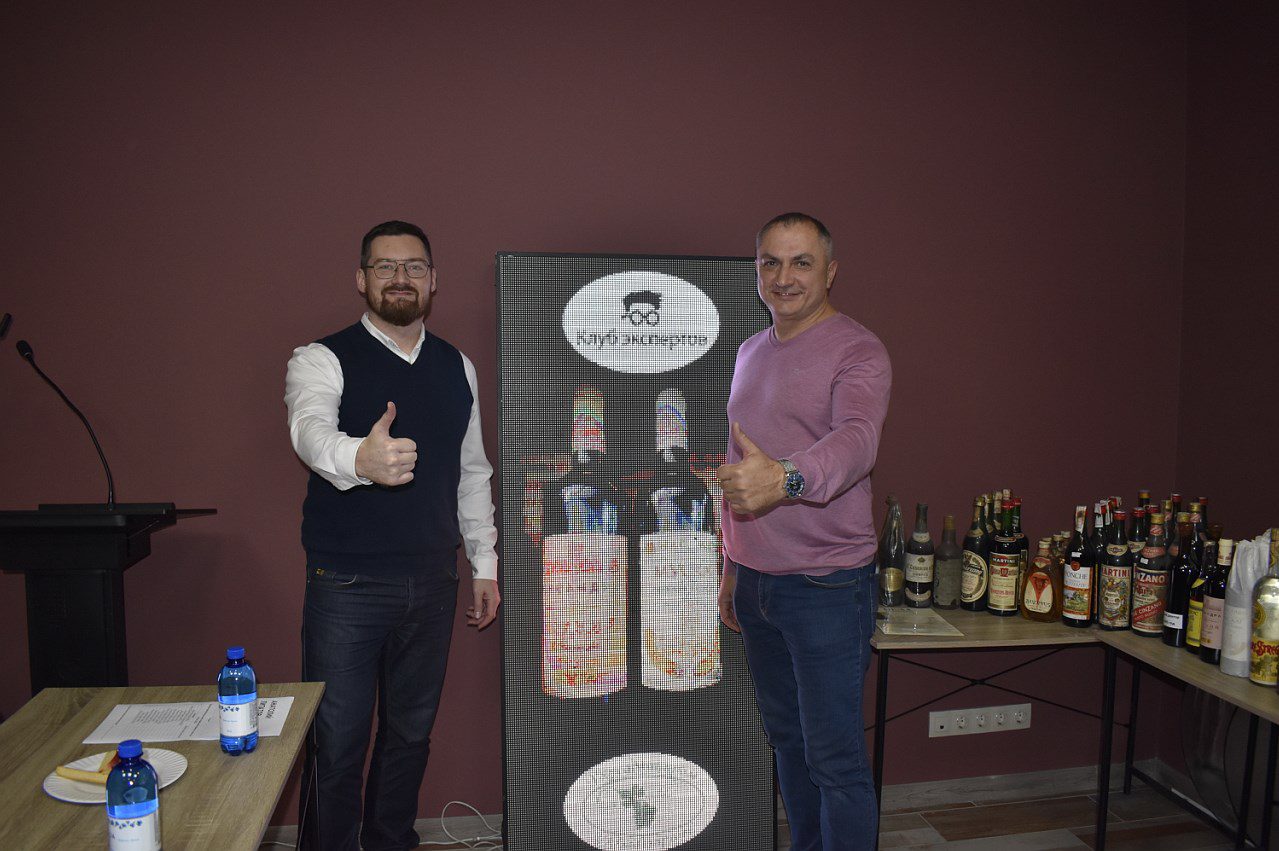
The Club of Experts is Kiev analytical center, which is engaged in researches in the field of economics, sociology and other scientific disciplines. In particular, with the assistance of the Club of experts during the last year there were held several events for the promotion of the national winemaking products.
Public Union “Ukrsadvindindprom” was a partner of the seminar and tasting. “Ukrsadvindwinprom” unites about 200 producers of fruits, berries, nuts and grapes, enterprises that process fruits and berries and produce wine, as well as scientific institutions for implementation of new scientific approaches in production.
CLUB OF EXPERTS, CONFERENCE, SCIENCE, UKRSADVINPROM, URAKIN, vintage wine, WINE, WINEMAKING, Магаляс
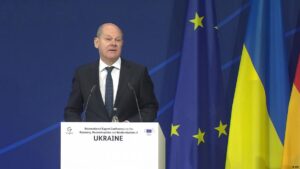
Germany reaffirms its readiness to support Ukraine for as long as necessary, and is ready to hold an annual conference on the reconstruction of the country in 2024, Chancellor Olaf Scholz said.
“Our goal is a peaceful Ukraine that will live in prosperity,” he said at the conclusion of the International Expert Conference on the Reconstruction of Ukraine in Berlin on Tuesday.
Scholz recalled that the URC was hosted by Swiss Lugano in 2022 (and Lithuanian Vilnius in 2021), and next year it will be held in the UK.
The Prime Minister of Japan, who will take over the G7 presidency next year, Fumio Kishida, in his video address to the conference in Berlin, stressed that Ukraine will remain in the spotlight, and Japan will make efforts to set the framework for a transparent and fair process of rebuilding the country based on desires. and aspirations of its people.
Also, the President of this country, Joko Widodo, announced the important position of Ukraine on the agenda of the upcoming G20 summit in Indonesia in November. According to him, the highest priority is diplomacy for the sake of peace and the end of the war.
The head of Indonesia called for a constructive dialogue for the sake of peace at the upcoming summit, including the parties “standing on different sides”, at the same time recalling the military assistance allocated to Ukraine and the commitments made by Jakarta to restore Ukrainian hospitals.
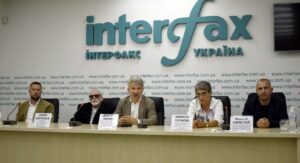
The military aggression of the Russian Federation and active hostilities gave a powerful impetus to the development of the direction of rehabilitation in Ukraine, but the war showed the need to develop approaches to the rehabilitation of military traumas, according to the participants of a roundtable on topical issues of medical and psychological rehabilitation held at Interfax-Ukraine on September 5.
“We started building a rehabilitation system in Ukraine since 2014, but today there are problems that have not yet been resolved. The rehabilitation system depends on many things, including money, because rehabilitation is quite an expensive thing,” Executive Director of the Ukrainian Association for Stroke Prevention (UABI), doctor of physical and rehabilitation medicine Maryna Huliayeva said.
Huliayeva said that in “those clinics that do not have multidisciplinary teams for rehabilitation, rehabilitation is at a low level, the lack of specialists leads to the fact that the process and quality of rehabilitation care is hindered.”
Commenting on the rehabilitation packages, according to which the National Health Service of Ukraine (NHSU) contacts clinics under the Medical Guarantee Program, the expert said that “most of the package is spent on a patient who is already stabilized, but the issue of acute rehabilitation is hung.”
“Unfortunately, it happens that the stroke unit does not have a physical therapist in staff, but there is one in a rehabilitation department. Therefore, there is not enough staff for acute rehabilitation, where major complications are prevented,” she said.
Huliayeva said that, in particular, the military and patients with military traumas should also be examined by a specialist in physical and rehabilitation medicine, but there are no such specialists in military hospitals, so these patients are consulted by civilian doctors.
“I think that such medical care should be developed within the framework of the financing of the Armed Forces of Ukraine. Military doctors are ready to cooperate, we advise military hospitals, we come once or twice a week, we accept them for a rehabilitation package, we work with them,” she said.
At the same time, Huliayeva said that the approach to the rehabilitation of the military should take into account the purpose of rehabilitation, which depends on the severity of traumas.
Huliayeva believes that to develop the rehabilitation of the military, a decision is needed at the state level, “to introduce those positions [in the area of rehabilitation] in military hospitals that were introduced into civilian medicine.”
According to Huliayeva, in addition to introducing rehabilitation into military rehabilitation, it is necessary to develop palliative medicine, as well as rehabilitation at the outpatient level.
In turn, Vadym Kerestey, head of the rehabilitation direction of the ADONIS medical group of companies, also said that the war gave a start to the development of rehabilitation medicine, but if “civilian rehabilitation medicine develops, then rehabilitation in the military in hospitals stands still.”
“Unfortunately, there is a catastrophic lack of specialists. They do not open positions for physical therapists, ergotherapists and other specialists who are part of multidisciplinary teams. There are no such rehabilitation teams in military hospitals that could provide high-quality medical care specifically for the military, who often have severe polytrauma,” he said.
The expert said that “military hospitals are overcrowded with patients with severe traumas, but there are not enough specialists.”
“It is important that the military introduce the position of physical therapists in military hospitals. Perhaps the subcommittee of the Verkhovna Rada, which deals with rehabilitation, could initiate this, so that positions of doctors of physical and rehabilitation medicine could be opened in the military structures,” Kerestey said.
Commenting on the development of rehabilitation in military medicine, Kerestey also noted the importance of rehabilitation goals.
“Rehabilitation terms vary from several weeks to several months, since different patients may have different goals of rehabilitation. For some, this is a return to the ranks of the Armed Forces of Ukraine, for others, at least self-service,” he said.
He also believes that at present in Ukraine “the number of qualified doctors of physical and rehabilitation medicine is very small, they are sorely lacking.” In particular, according to Kerestey, currently in Kyiv “there are about five to six rehabilitation high-quality rehabilitation centers where patients can be treated, starting with intensive care units,” the rest of the centers in Kyiv can only work with already stabilized patients, and things are much worse in the regions.”
“Rehabilitation requires equipment, but it is not the main thing. It is important that the department has specialists: psychologists, ergotherapists, physical therapists, their assistants,” he said.
At the same time, Yehor Prokopovych, head of the Department of Physical and Medical Rehabilitation at Kyiv City Hospital No. 6, said that this clinic has enough specialists of the required profile. At the same time, in connection with the war, the hospital also accepts military personnel for treatment.
“Before March 2022, our hospital accepted [for rehabilitation] only patients with stroke and for rehabilitation under the orthopedic package. Since March, the hospital has been included in the list of hospitals that provide rehabilitation to the military, and we had to reorganize something in our work. For example, we did not know that narcotic analgesics could be prescribed in rehabilitation, that there could be patients with colostomy, with concomitant traumas, that they could have complications that we did not foresee in rehabilitation. We had to learn how to treat in rehabilitation and pneumonia, and cystitis, and urethritis, and much more,” he said.
Prokopovych said that before the war, the department had mainly “patients aged above 50, and now they are young patients who have severe injuries.”
The expert also stressed the absence of “the NHSU package for military rehabilitation.”
“We code them as ordinary neurological patients, and since the beginning of the war we have not received any clarification from the NHSU regarding the military,” he said.
“We see a big push in the field of rehabilitation, but there are practical problems. For example, this is the transfer of a patient from us to another medical facility, building codes or equipment. For example, now we need two devices for the rehabilitation of the military, one of them costs about EUR 10,000, the second is EUR 14,000,” he said.
For his part, commenting on the issues of psychological rehabilitation in wartime, psychiatrist and psychotherapist Yevhen Voronkov said that “not everyone has PTSD, but many people suffer from PTSD and complex PTSD.”
“It is necessary to distinguish between PTSD in combatants and in the civilian population who suffered from the consequences of the occupation, violence, bombing. In many cases, people turn to the general psychiatric service, but this is a level of disorders that no psychiatric services are adapted to in reality,” he said.
At the same time, according to Voronkov, psychiatric education is currently focused on the treatment of severe mental illness, and not the treatment of conditions “that require individual and long-term, but mainly psychotherapeutic management with some medication component and pharmacological support.”
Voronkov believes that there are specialists in Ukraine who can be qualified to work with a person in war conditions in a psychotherapeutic sense, including in the direction of PTSD, “but they are not trained in public structures, they are trained as part of international projects, most of them work individually or in small teams.
“Some of our psychotherapists work with those who have returned from captivity, have received severe injuries. But these are only a few of the therapists who are involved in the work. There is a problem in training military psychologists or psychologists,” he said.
The expert said that the psychological rehabilitation of patients in wartime requires a conceptual development, since “this is a new situation in such a mass plan, it is only six months old.”
“Neither the structure nor the characteristics of these patients is clear. There is only a general understanding of what to do with it. And it is clear that patients need to be distinguished: one thing is those who were in the occupation, the other is the military, the third is children, internally displaced persons, and so on. It will be a large complex, for which, I believe, the psychiatric service is not ready,” he said.
In addition, Voronkov said that “there are no systematic studies of the military on PTSD.”
“Such studies require a pool of patients, besides, PTSD does not occur immediately, it is a delayed syndrome. A burst of PTSD can manifest itself in its most real forms several months after traumatic situations. Sometimes it is weeks, but more often after months we can see the formation of specific PTSD. It is difficult to work with such patients, this is a very difficult contingent not only for rehabilitation, but also for treatment in an acute condition,” he said.
At the same time, Voronkov said that the developments that were made by foreign specialists in the course of local military conflicts of past years may now be ineffective in Ukraine, since “it is necessary to take into account huge transcultural differences, in psychology the transcultural aspect is very important.”
“Severe PTSD is a very serious disease. Doctors are not adapted to work in such conditions, it is impossible to train such specialists in advance,” he said.
In turn, the head of the Department of Nephrology and Renal Replacement Therapy of the National University of Health Protection, Professor Dmytro Ivanov said that the Ukrainian Association of Nephrologists, based on international experience, prepared recommendations for rehabilitation in the specialty of nephrology.
“They relied on world experience, because there are military conflicts, and there is an array of information to form recommendations,” he said.
At the same time, according to Ivanov, about 600 out of nearly 10,000 Ukrainians, who were on dialysis at the beginning of the war, left for the EU countries.
CONFERENCE, Huliayeva, KERESTEY, MEDICINE, nhsu, Prokopovych, REHABILITATION, АДОНИС, Воронков, ИВАНОВ, уаби
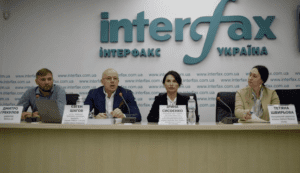
Experts representing private and public clinics and related businesses have teamed up to develop and launch a program to develop preventive medicine and support the health of Ukrainians in wartime.
As the head of the Health Support Program and GAMA CONSULTING, Adviser of the Russian National Institute for Preventive Medicine Yevhen Shagov said at a press conference in Kyiv, the need to develop the program is caused, in particular, by the needs of wartime medicine. The press conference was attended by experts from Kundiiev Institute of Occupational Health of the National Academy of Medical Sciences of Ukraine, the Oxford Medical clinic (Kyiv), Biotus.ua and the medical online hub DOC.UA, which are members of the initiative working group, which activities are aimed at the development of preventive medicine in Ukraine.
“Education and medicine are under the pressure of martial law and Russian aggression, and this cannot but have consequences. The education system has managed to transform during the pandemic, in healthcare we need to take this experience into account. We already see that war and chronic stress have an extremely negative impact on various aspects of health. All this is happening amid declining wealth of Ukrainians and the fact that a significant part of Ukrainians are abroad, where they often have a language barrier and lack high-quality health insurance to effectively take care of their health,” he said.
According to Shahov, chronic acute stress that a person faces in a war leads to an imbalance in the endocrine system, which causes emotional and physical burnout, decreased performance, and sleep disturbance. Moreover, stress is the cause of immune suppression, exacerbation of chronic diseases, the development of a number of new pathologies, up to oncological diseases. According to Shahov, this can be prevented by an effective and accessible system of preventive medicine: “There is no way to cancel stress, but it is possible to increase the stress resistance of Ukrainians.”
He noted that the goal of the program was to develop an effective “health basket,” which will include, among other things, personally selected vitamins and microelements. Monitoring the health status of patients, taking medications, adjusting all components of the prevention program can be carried out using online tools and distance medicine.
According to Shahov, the development of the program and the “health basket” began even before the war, its creation was announced in 2020 by President Volodymyr Zelensky. At present, its authors have already accumulated a sufficient amount of information about its positive impact on health.
The world’s leading experts in Anti-Age Medicine, Age Management, specialists from private and public medical institutions of our country took part in the work on the program.
According to Deputy Director of Kundiiev Institute of Occupational Health of the National Academy of Medical Sciences of Ukraine Iryna Sysoyenko, the issue of including preventive medicine in the general healthcare system is currently very relevant.
“In the conditions of martial law and the emergency load on the healthcare system, it is especially important to prevent the occurrence of diseases in time. Timely diagnosis allows us to detect the accumulation of heavy metals and harmful substances in the body, and preventive measures will prevent serious diseases in the future,” she said.
Sysoyenko noted that the institute, in particular, has toxicological laboratories and can clearly determine the presence of harmful substances in the human body.
In turn, General Director of the Oxford Medical clinic (Kyiv) Tetiana Shvyriova emphasized that with the start of military aggression, people began to seek medical help not only in urgent and emergency conditions, but also in a state of stress, psychological instability and “misunderstanding what they have to do with their chronic diseases.”
“Some people were cut off from doctors, from pharmacies, but they had to continue to be observed and receive consultations about their health. We see what months of lack of opportunity for people to receive qualified help amid acute stress lead to,” she said.
According to Director of Biotus.ua Dmytro Hrekulov, his company plans to expand the already existing production of Ukrainian vitamin drugs based on the recommendations developed by the project experts.
According to Olena Hrytsai, head of medical booking at DOC.UA, it will be possible to get recommendations and become a member of the program using the DOC.UA medical online hub platform.
“Now DOC.UA receives about 5 million requests from patients per month, and 40% of them are related to stress management, so the initiative is very relevant,” Hrytsai said.
biotusua, CONFERENCE, docua, Gama consulting, hrekulov, hrytsai, MEDICINE, OXFORD MEDICAL, preventive, shahov, shvyriova, сисоєнко

Germany is ready to hold a conference on reforms in Ukraine in 2024, German Minister for Economic Cooperation and Development Svenja Schulze said.
“The restoration of a free and democratic Ukraine is our joint goal. Recovery and reforms are elements of what will be a strategic task for the coming years. Therefore, Germany will also host an international expert conference on reconstruction issues. Germany is also ready to host a conference on reforms in Ukraine in 2024 “, she said at the International Conference on the Reconstruction of Ukraine in Lugano (Switzerland) on Tuesday.
Schulze emphasized that the platform for the restoration of Ukraine should unite the Ukrainian government, all international partners and experts.
In addition, the minister stated that her government is committed to providing grants in the amount of EUR426 million in direct support to Ukraine.